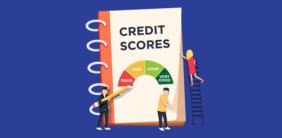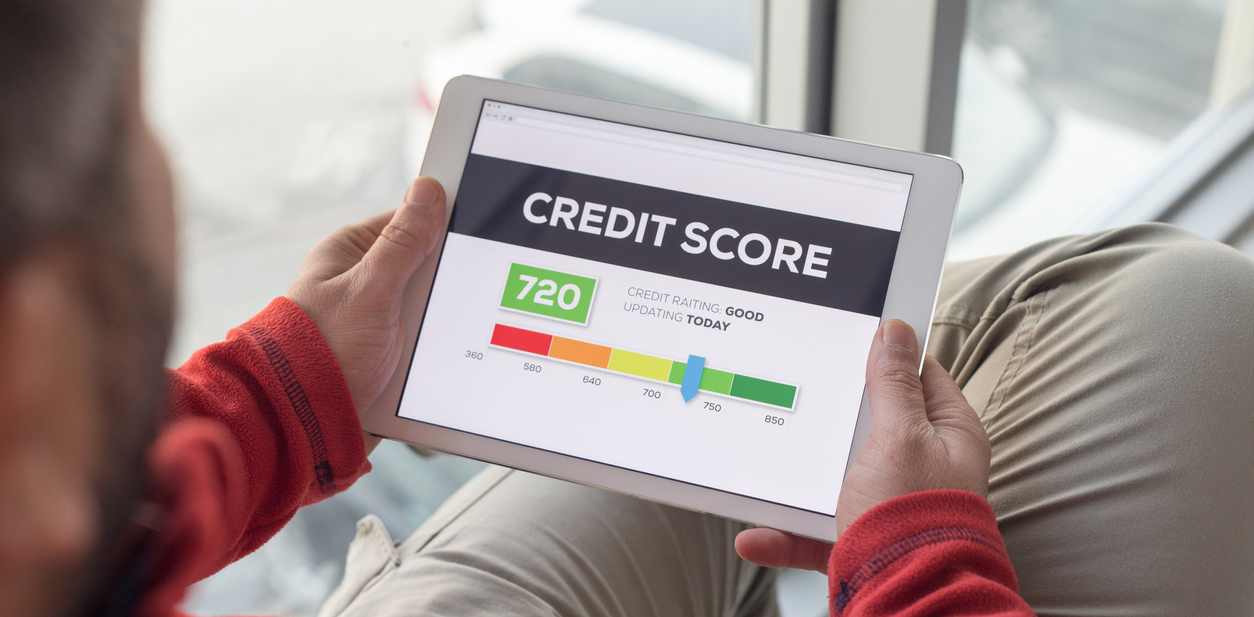Since late payments can hurt your credit, it’s important to pay your auto loan on time, every time.
In a perfect world, you’d always pay your auto loan, mortgage, personal loan, credit card, and other bills on time. The reality, however, is that a job loss due to the COVID-19 pandemic or another financial crisis may prevent you from doing so.
Unfortunately, late payments can take a toll on your credit. This is because payment history is the most important factor in your FICO credit score and accounts for 35% of it. They can make it difficult for you to get approved for low interest rates and favorable terms in the future.
Therefore, it’s in your best interest to avoid late payments as much as possible. By doing so, you can maintain a good credit report with positive remarks. And save hundreds or even thousands of dollars down the road.
Payment history is the most important factor in your FICO credit score and accounts for 35% of it.
When Will a Late Payment Show Up on My Credit Report?
Under federal law, a creditor can’t report a late payment to the major credit bureaus until it’s at least 30 days past its due date. They are required to choose from six options any time they report a late payment as the credit industry only allows for these late payment statuses.
- 30-59 days late
- 60-89 days late
- 90-119 days late
- 120-149 days late
- 150-179 days late
- 180 days late or more
This means that if you overlook your credit card payment or auto loan bill by a few days, for example, and pay it before the 30-day mark, your credit won’t suffer. Depending on your lender and their terms, however, you may be on the hook for a late fee.
Are creditors required to report late payments?
Contrary to popular belief, creditors do not have a legal obligation to report late payments. For this reason, it’s possible to be more than 30 days late on a payment yet not see it on your credit report. If this happens to you, consider yourself lucky as most creditors do report payments that are 30 days past due.
Realize that some creditors may wait a bit before they send late payments to a collection agency that will report the negative items to the credit bureaus. So just because your creditor hasn’t reported a payment that’s 35 days late doesn’t mean they won’t report an item that’s 60 or 90 days past due.
How do I know there’s a late payment on my credit report?
It’s a good idea to keep an eye on your credit reports on a regular basis so that you’re aware of any late payments. To do so, visit AnnualCreditReport.com to download free copies of your reports from all three major credit bureaus: Experian, Equifax, and TransUnion. You may receive a free credit report from each bureau every 12 months.
You can also take advantage of a service that offers free alerts and monitoring. If you sign up for Credit Karma, Credit Sesame, or Credit Wise, for example, you’ll receive a notification every time your credit takes a hit.
What Should I Do If I’m Late on a Payment?
If you’re less than 30 days late, take a deep breath. Your credit won’t take a hit as long as you pay prior to the 30-day mark. In the event you’re charged a late fee, ask your creditor if they can forgive it. If you’ve never been late or are rarely late, there’s a good chance they will.
In the event you’re more than 30 days late, make your payment as soon as you can. The later you pay, the more your credit will suffer. A 60-day late payment is significantly worse than a 30-day late payment.
In addition, you can write a goodwill letter to your lender. Explain why your payment is late and take responsibility for the mistake. They may make a goodwill adjustment and remove the late payment from your account. In today’s COVID-19 pandemic era where job loss and financial struggles are common, a goodwill letter may be very effective.
You can also negotiate with your lender and ask if they’ll remove the late payment if you make a partial payment or pay off your account balance in full. Be sure to get any agreement you’re able to reach in writing.
Will a partial payment be reported late?
Let’s say you can’t make your auto loan payment in full. You decide to send in a partial payment because you believe something is better than nothing. While a partial payment will lower your balance, your creditor may still treat it like a late payment and send it to collection accounts. This is likely to happen if you don’t make the minimum payment.
Don’t be surprised if you make a partial payment and later see a late payment on your credit report.
How Long Do Late Payments Stay on My Credit Report?
A late payment can remain on your credit report for up to seven years. Unfortunately, it may affect your credit score the entire time it’s there. The good news is the impact of late payments on your credit will lessen over time.
You may also see a positive difference in your credit report if you make future payments on time, keep your balances low, and reduce your debt-to-income ratio. Most scoring models will reward you for working hard to improve your credit.
How Many Points Does a Credit Score Drop After a Late Payment?
Figuring out exactly how much your credit score will drop after making a late payment or two isn’t easy.
“In general, the higher the FICO score, the greater the effect of a missed payment is,” says RateGenius Consumer Credit Manager Joel Benavides. “It’s difficult to know exactly how many points a FICO score will drop due to the number of factors involved in calculating a score.”
In general, the higher the FICO score, the greater the effect of a missed payment is.
Advantage Credit Counseling Services reports as much as a 140- to 160-point hit after a 30-day late payment — with higher scores seeing the biggest drop. However, the number of points still varies greatly from person to person depending on credit utilization, credit inquiries, new credit, and other factors.
Can I Remove Late Payments From My Credit Report?
There may come a time where you check your credit report and discover that a late payment shouldn’t be there. If any of these situations apply to you, you may be able to remove the payment from your credit report.
- You paid your bill on time, but it was reported late: If you know you paid a bill on time, but your credit report says otherwise, there may have been a mistake. Look at the account you used to pay it to confirm that you did, in fact, pay the bill on time.
- The late payment is more than seven years old: Late payments should not be on your credit report after they hit the seven-year mark. If you notice a late payment from over seven years ago, an error may have occurred.
So how can you take these late payments off your credit report? File a dispute letter with the credit bureau that issued the report with the incorrect late payment. Keep in mind that under the Fair Credit Reporting Act, the bureau will have 30 days to remove or correct inaccurate information.
You may also reach out to the lender and go through the disputing process with them. Note that you can’t ask a credit repair company to delete accurately report payments from your credit report.
4 Ways to Avoid Late Payments
Even one late payment can ding your credit report. There are a number of strategies that can reduce your risk of late payments and keep your report and FICO score in tip-top shape including.
1. Set Up Reminders
You can use the calendar feature in your phone to set up reminders about any upcoming bills you’ll need to pay in a few days. Another option is text alerts or email reminders through your credit company or other creditor.
2. Enroll in Automatic Payments
If you enroll in automatic payments or autopay, the funds will be automatically deducted from your bank account and sent to the creditor. This “out of sight, out of mind” approach can make your life easier and give you some much-needed peace of mind. Just make sure you always have enough money in your bank account to cover your payments.
3. Choose Payment Dates Wisely
Many lenders will allow you to choose when you want to make your monthly payments. You may decide to stagger them so that they’re not all due at once. Or you may find it easier to select the same due dates for your auto loan, mortgage, and other bills. If you want to avoid confusion and keep things simple, the latter may be the way to go.
4. Contact Your Creditor
If you believe you won’t be able to make a payment on time, contact your creditor. They may be willing to work with you and grant a payment deferral or allow you to make a partial payment. This is particularly true if you have a history of on time payments and have proven that you’re a responsible borrower.
Can I Refinance My Car Loan With a Late Payment History?
It depends on your unique situation. While your credit score will be considered, it’s only one part of a refinancing application. Other factors such as your debt-to-income ratio, and loan-to-value ratio will play a role in whether or not you’re approved.
Try to Avoid Late Payments
There’s no denying that late payments can affect your credit and make it difficult for you to meet your short and long-term financial goals. As long as you make an effort to avoid late payments as much as possible, you can set yourself for financial success.
;)












